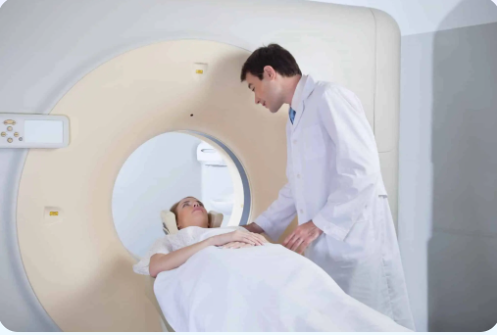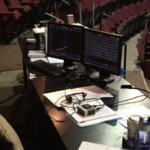In the world of medical imaging, Magnetic Resonance Imaging (MRI) is one of the most important tools used to diagnose and treat a variety of medical conditions. MRI technology has revolutionized how doctors observe and analyze the internal structures of the body. At the heart of MRI operations is the MRI tech, the skilled professionals who operate and maintain this complex equipment. This article delves into the role of an MRI tech, the technology behind MRI machines, and the significance of MRI in modern medicine.
What is MRI Technology?
MRI, or Magnetic Resonance Imaging, is a non-invasive imaging technique used to visualize the inside of the body. Unlike X-rays and CT scans, MRI does not rely on radiation to produce images. Instead, it uses powerful magnets, radio waves, and a computer system to generate detailed images of organs, tissues, and bones.
MRI scans are particularly valuable for visualizing soft tissues, such as the brain, spinal cord, muscles, and ligaments, making it a key tool in diagnosing a range of medical conditions, from neurological disorders to musculoskeletal injuries.
The MRI machine consists of a large magnet, a radiofrequency coil, and a computer system. When a patient enters the MRI scanner, the magnetic field aligns the hydrogen atoms in the body. Radio waves are then sent through the body to disrupt this alignment, and as the hydrogen atoms realign, they emit signals. These signals are captured by the coils and processed by a computer to create detailed images.
What Does an MRI Tech Do?
An MRI tech (also known as a MRI technologist) is a healthcare professional who operates MRI machines to produce high-quality diagnostic images. These images are used by physicians to diagnose conditions, track the progress of diseases, or plan treatments. The role of an MRI tech is both technical and patient-focused. They are responsible for ensuring that patients are comfortable, safe, and correctly positioned during the MRI scan, as well as for operating the machine to capture clear, accurate images.
Key Responsibilities of an MRI Tech:
- Preparing Patients for Scans
- MRI techs are responsible for explaining the MRI procedure to patients, ensuring they understand the process and what to expect. They also take a thorough medical history to rule out any contraindications for an MRI, such as the presence of metal implants or pacemakers, which could interfere with the magnetic field.
- Positioning Patients
- Correctly positioning the patient in the MRI scanner is critical to obtaining high-quality images. MRI techs must ensure that patients are properly aligned to capture images of the specific area being examined. This may require the use of pillows or straps to help the patient remain still.
- Operating the MRI Machine
- MRI techs operate the MRI machine by adjusting settings, such as the strength of the magnetic field, and selecting the appropriate imaging sequences based on the area being examined. They monitor the scan in real-time to ensure that images are being captured correctly and that the patient is safe and comfortable.
- Monitoring the Patient’s Comfort and Safety
- Although MRI scans are non-invasive, they can be uncomfortable, especially if the patient is claustrophobic or needs to remain still for extended periods. MRI techs are responsible for maintaining communication with the patient during the scan and making adjustments to ensure their comfort.
- Interpreting and Documenting Images
- After the scan is complete, MRI techs check the images to ensure they are clear and of high quality. They then save the images to a digital file for the physician to review. While MRI techs are not responsible for interpreting the results, their expertise in capturing high-quality images is critical for accurate diagnosis.
- Maintaining and Troubleshooting Equipment
- MRI techs are also responsible for maintaining and troubleshooting the MRI machine. They must ensure that the machine is regularly calibrated, properly maintained, and in good working condition. In case of any technical issues, MRI techs may need to troubleshoot the equipment or contact a specialist for repairs.
Skills Required to Be an MRI Tech
Being an MRI tech requires a combination of technical knowledge, clinical skills, and the ability to work with patients in a compassionate and professional manner. Some of the key skills required include:
- Technical Expertise: MRI techs must have in-depth knowledge of MRI machines, their functions, and how to adjust the settings to capture the best possible images.
- Attention to Detail: High-quality diagnostic imaging requires precision. MRI techs need to pay close attention to every aspect of the scan to ensure images are clear and accurate.
- Patient Care Skills: MRI techs must be empathetic and able to help patients feel comfortable and at ease during the scan. This is especially important for patients who may be anxious about the procedure or those who need help staying still.
- Problem-Solving Skills: MRI techs must be able to troubleshoot equipment issues or find alternative ways to position patients to obtain the necessary images.
- Communication Skills: MRI techs must clearly explain the procedure to patients, answer any questions, and communicate with other healthcare professionals to ensure that the images meet diagnostic requirements.
Education and Training to Become an MRI Tech
To become an MRI tech, a candidate typically needs to complete the following steps:
1. Earn a Degree in Radiologic Technology
- The first step is to earn an associate’s or bachelor’s degree in radiologic technology from an accredited program. This program will teach the fundamentals of medical imaging, including anatomy, patient care, radiographic techniques, and safety protocols.
2. Complete MRI-Specific Training
- After completing a general radiologic technology program, an aspiring MRI tech will need to undergo specialized training in MRI technology. This may involve coursework in MRI physics, techniques, and procedures, as well as hands-on training in MRI settings.
3. Obtain Certification
- Certification is not always mandatory but is highly recommended and may be required by employers. In the U.S., the American Registry of Radiologic Technologists (ARRT) offers certification for MRI techs. Certification typically requires passing an exam that tests knowledge and practical skills in MRI technology.
4. Gain Experience
- Many MRI techs start out working in radiologic technology before specializing in MRI. Some employers may offer on-the-job training, while others may prefer applicants who have prior experience.
5. Continuing Education
- MRI techs must complete continuing education to stay up to date with the latest advancements in MRI technology and medical imaging techniques. This helps ensure that they remain proficient and knowledgeable in their field.
The Importance of MRI Techs in Healthcare
MRI techs play an essential role in the healthcare system. Without their expertise in operating MRI machines and capturing high-quality images, it would be much more difficult for doctors to make accurate diagnoses. MRI scans provide invaluable insights into the body’s internal structures, allowing for early detection of diseases, accurate assessment of injuries, and better treatment planning.
From brain tumors to joint injuries, MRI scans help doctors detect conditions that may not be visible through other imaging techniques. MRI techs, through their skill and dedication, contribute directly to the diagnostic process and help patients receive the care they need.
Conclusion: The Vital Role of MRI Techs in Modern Medicine
MRI techs are an integral part of the healthcare system, utilizing advanced technology to capture high-quality images that enable doctors to diagnose, monitor, and treat a variety of medical conditions. With their technical expertise, patient care skills, and attention to detail, MRI techs play a crucial role in the success of MRI procedures.
As the demand for medical imaging continues to rise, MRI techs are more important than ever. Those considering a career in this field can look forward to a rewarding and challenging profession, with opportunities for growth and advancement as technology continues to evolve. Whether you’re seeking to enter the field or simply understand the vital role of MRI techs, it’s clear that their expertise is essential to modern medicinemri tech


